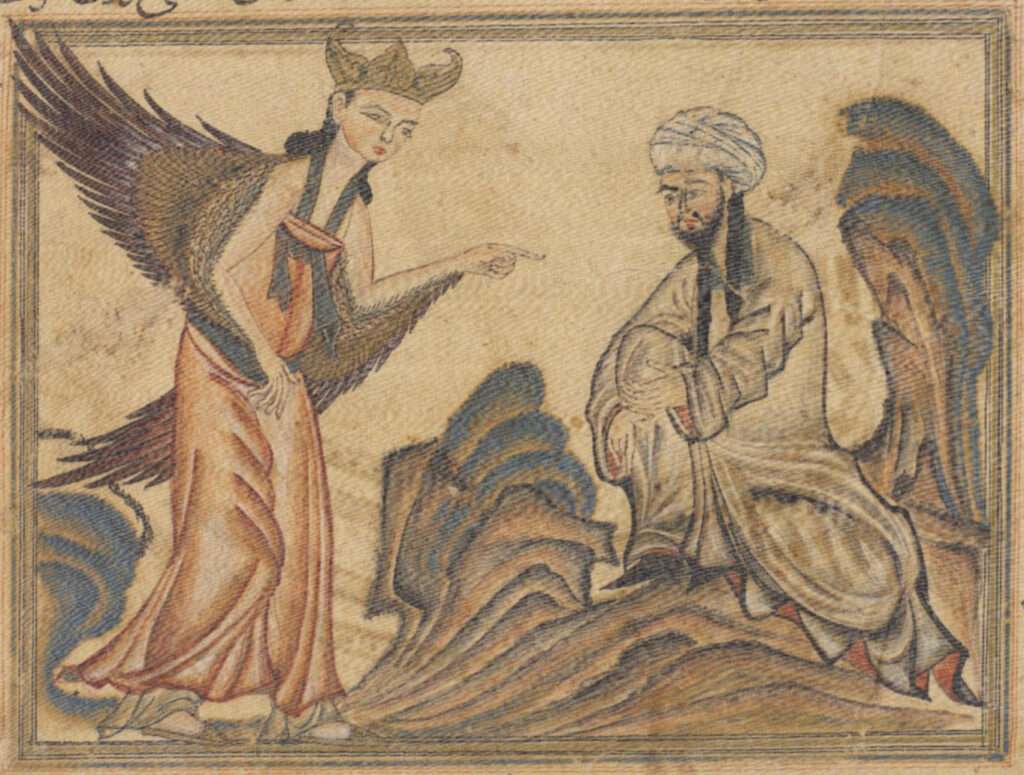A professor was let go from her job after showing a class an artwork depicting the Prophet Muhammad. She is now suing her former university, alleging religious discrimination and defamation.
The basic facts of the case are that Erika Lopez Prater taught an art history class where she showed an illustration of Muhammad (pictured in this article) receiving a revelation from the angel Gabriel – part of A Compendium of Chronicles by Rashid-al-Din, a 14th Century Islamic scholar. Before presenting it, she warned students that they could choose to opt out of the lesson.
In spite of the warning, a student still attended the class and then filed a complaint with the University, who then dismissed Dr. Prater in an effort to be “politically correct” rather than deal with the controversy.
Tolerance is about more than skin color or lifestyle. It must also be about ideas. The greatest invention in the history of mankind is the scientific method — where we establish a hypothesis, and then challenge it through experimentation to refine it and make it more accurate.
In scientific pursuits, challenging an assumption and then providing an experiment to test that challenge is good science. In academics, consuming information that may contradict existing theory is good research. In religion, speech that challenges core beliefs is blasphemy.
People can freely choose their religion. Academic institutions can freely choose the academic principles and conclusions they will teach. Refusing to allow some art work to be viewed because it is deemed by someone to be offensive is not academically rigorous. Refusing to study that which we oppose is to chose to be ignorant.
And while plenty of people may chose to be ignorant, our tolerance of their desires should not extend to allowing them to force others to be ignorant too. In our rush to be sensitive and tolerant of others, we have weaponized being offended and allowed other’s feelings to forgive them for not being tolerant of us. We practice tolerance because we expect it to be returned. Tolerance is not endorsement or support. It’s about the Live and Let Live philosophy: so long as nobody is being hurt, we must not restrict people’s lives.

Categories:
Tags:
[sc name="newsletter"][/sc]
Comments are closed